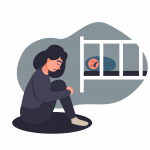While we have abundant data to demonstrate that the postpartum period is a time of increased vulnerability to psychiatric illness in women, it has been much more difficult to generate data estimating the risk of suicide during pregnancy and the postpartum period. Suicide is a rare event; however, suicidal ideation is relatively common among pregnant and postpartum women. A recent study from Japan uses a retrospective review of medical records to estimate the prevalence of suicide attempts among pregnant and postpartum women.
In this study, researchers conducted a nationwide retrospective cohort study using the Diagnosis Procedure Combination database, a national database of inpatients receiving acute care in Japan. All pregnant and postpartum women who had psychiatric disorders (based on ICD-10 codes in the medical record) and were hospitalized were included.
Among the 3,286 women identified (3,026 pregnant and 260 postpartum), 22 pregnant women and 16 postpartum women had attempted suicide. The prevalence of suicide attempts was significantly higher among postpartum women (6.2%) than among pregnant women (0.7%). Postpartum women who attempted suicide were more likely to be older than 30 years and to have either depression or psychosis. Wrist cutting was the most common method of suicide attempt among pregnant patients, whereas hanging was the most common method among postpartum patients. Three postpartum patients died during hospitalization.
This study is consistent with previous studies observing higher rates of suicide attempt and completed suicide among postpartum versus pregnant women. The finding that 6.2% of postpartum women with psychiatric illness made a suicide attempt is striking, especially in light of the fact that postpartum women are more likely to use more lethal methods to attempt suicide. The researchers also note that because this study did not include all hospitalizations of pregnant or postpartum women (it included only women with an identified psychiatric illness) and because suicide attempts may result in death outside of the hospital, this study does not give us an accurate estimate of the overall prevalence of suicide attempts among perinatal women. In fact, this study may actually underestimate the number of perinatal women who attempt suicide.
While this study clearly shows us that the postpartum period is a time of increased risk for suicide attempt, it does not provide us with easily identifiable risk factors to hep us to identify women at increased risk for suicide during the postpartum period. However, previous studies carried out in Sweden have demonstrated that the most robust predictor of postpartum suicide is a history of psychiatric illness. In another study from Denmark, researchers estimated that women with postpartum psychiatric illness, compared to women with no psychiatric history, were about 300 times as likely to die by suicide after the birth of a child.
Postpartum suicide is preventable. Despite increased interest in and awareness of perinatal mood and anxiety disorders, most women with perinatal psychiatric illness do not receive adequate treatment for their symptoms. Inadequacies in monitoring for and treatment of postpartum psychiatric illness contribute to increased risk for suicide in this population. Most experts in the field believe that we need more mental health treatment programs specifically designed to address the needs of this vulnerable population to improve access to mental health providers with expertise in the treatment of pregnant and postpartum women, to improve outcomes in this population, and to decrease risk of perinatal suicide.
Ruta Nonacs, Md PhD
Shigemi D, Ishimaru M, Matsui H, Fushimi K, Yasunaga H. J Clin Psychiatry. 2020 May 5;81(3):19m12993.






